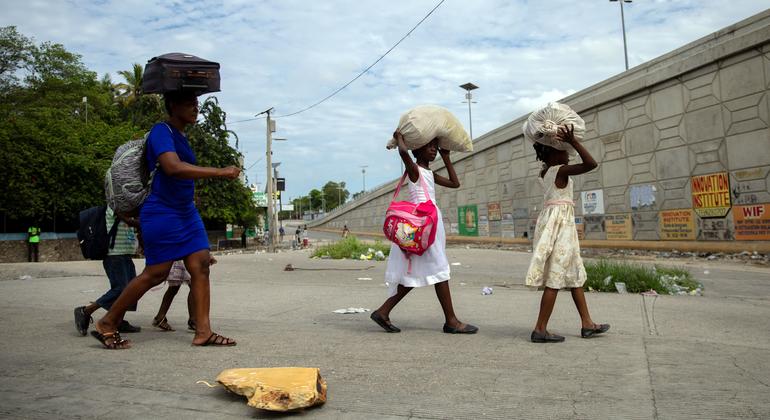Here’s the translation into American English:
—
As gangs in Haiti continue to expand their control and instill terror in the population, the United Nations Security Council has decided to approve the deployment of a new international force. This Gang Suppression Force (GSF) will be active for a period of 12 months and will consist of 5,550 personnel. Its main mission will be to collaborate with Haitian authorities to neutralize gangs, protect critical infrastructure, and facilitate humanitarian access to vulnerable communities.
The resolution that greenlights this measure was co-sponsored by Panama and the United States, highlighting the international concern over the growing multidimensional crisis affecting the Caribbean nation. The GSF will focus on intelligence-based operations aimed at dismantling criminal organizations and strengthening local institutions so that Haiti can eventually take on the responsibility for its own security. This will be complemented by the establishment of a United Nations Support Office, which will provide the necessary logistics and operational support on the ground.
This new deployment replaces the Multinational Security Support Mission (MSS), which had operated with limited personnel and resources, leaving significant gaps in the response capacity to the crisis. It is estimated that armed groups control about 90% of Port-au-Prince, blocking roads and subjecting the population to serious human rights violations, including kidnapping, rape, and murder. In the past year, over 5,600 people have been killed due to violence in the country.
The crisis is not limited to the capital; it has spread to regions that previously had not experienced these problems. More than 1.3 million people have been displaced, and essential services such as healthcare and food are in crisis. The Haitian National Police, which should be on the front lines of defense, is overwhelmed and incapacitated due to institutional collapse and lack of resources.
The situation is critical. Haiti cannot face this problem alone, as criminal groups have established a parallel government while impunity and corruption continue to exacerbate the security crisis. UN officials have indicated that while security is a vital aspect, it is not enough to solve all of the country’s problems. Haiti faces a multitude of crises that include growing humanitarian needs, a collapsing economy, and significant political abandonment since the assassination of President Jovenel Moïse in 2021.
Although the new force is considered necessary, many agree that its intervention must occur within a broader framework that includes reforms in governance, as well as humanitarian aid and long-term development. However, the challenge now will be determining when GSF operations will begin, with the hope that this will occur after the expiration of the MSS mandate in October 2025. The process of establishing this new force and securing its funding, which will largely depend on voluntary contributions from member states, promises to be a long and complicated challenge.
Source: MiMub in Spanish
